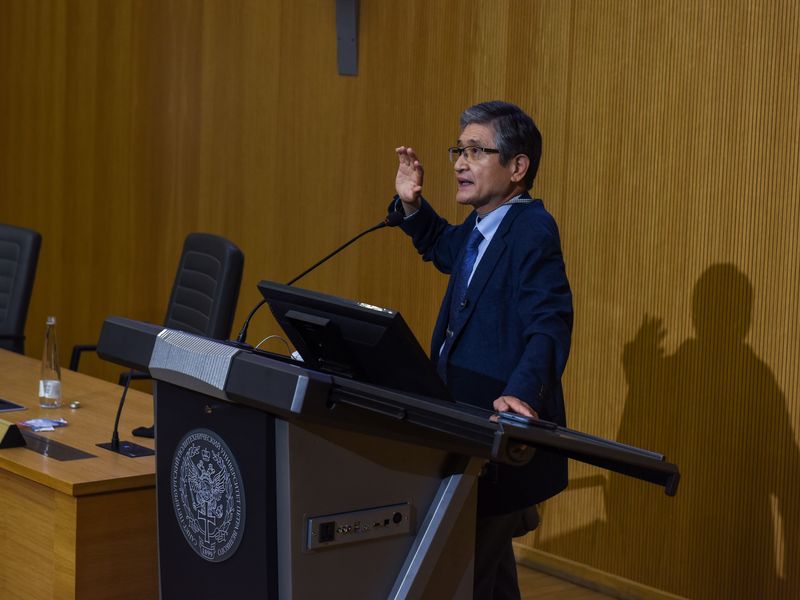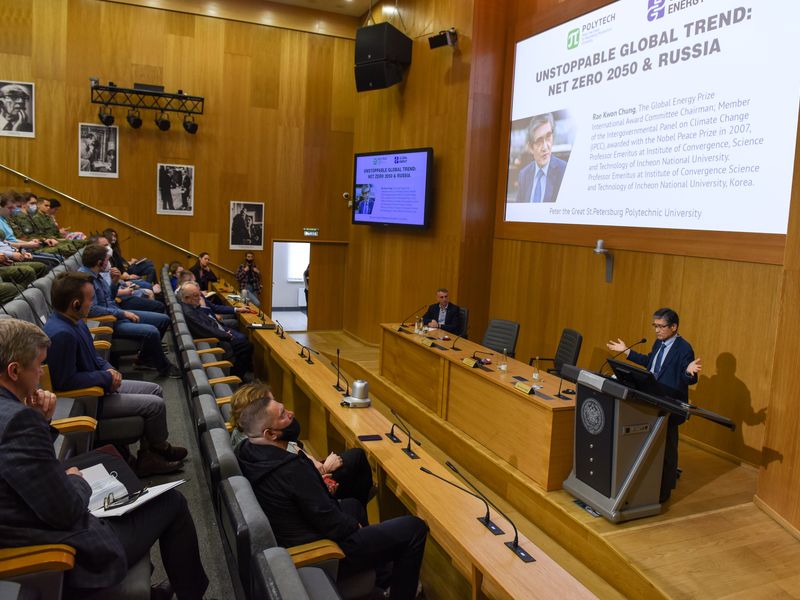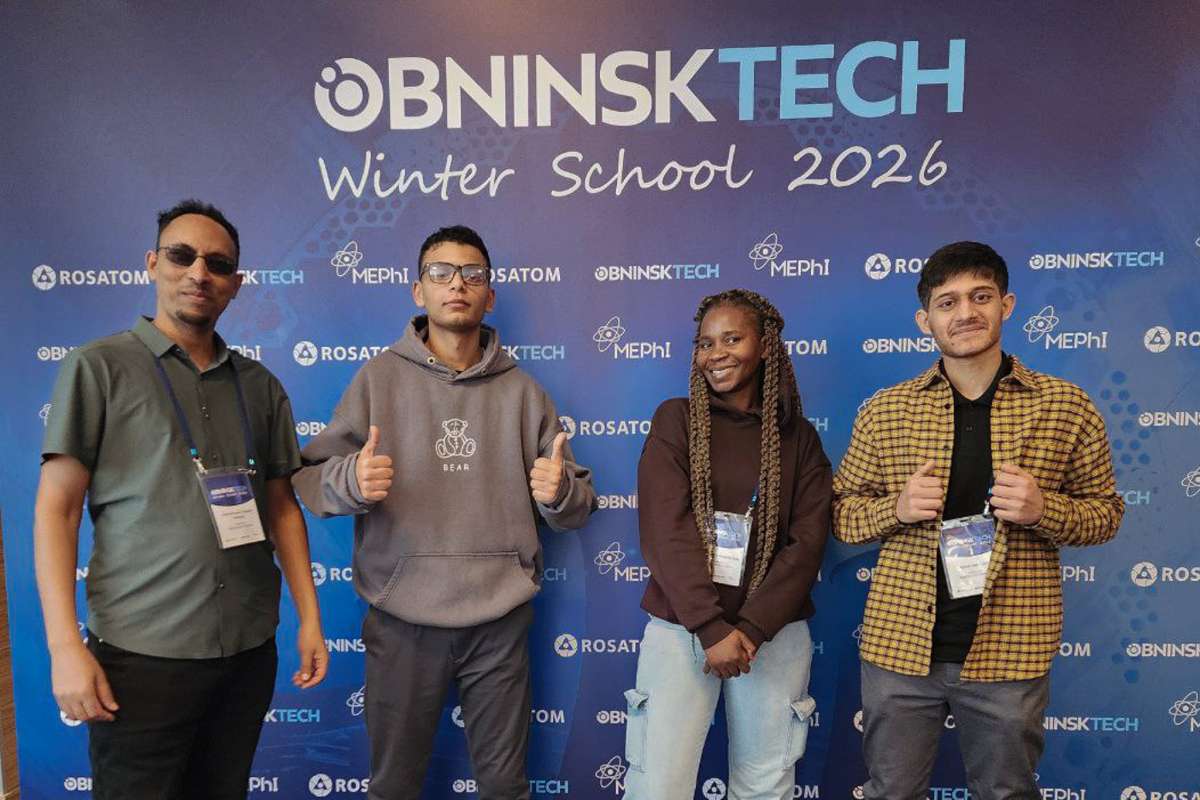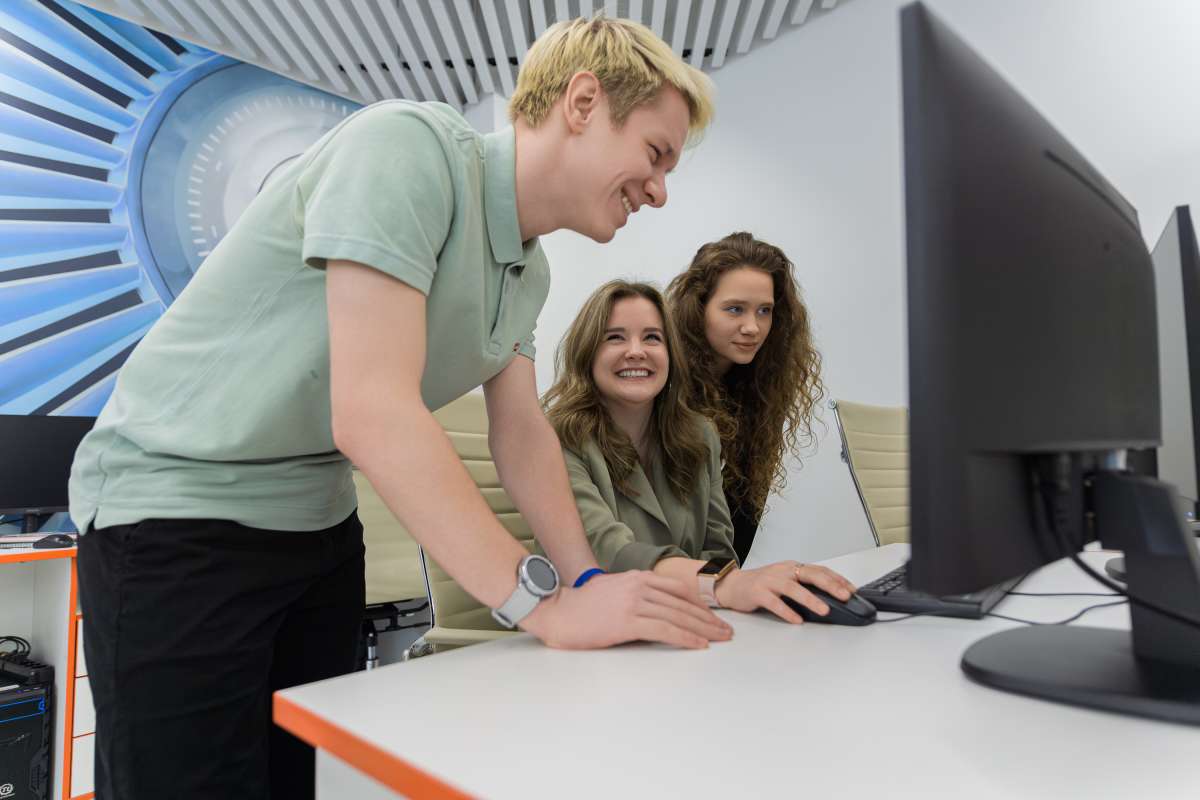
On June 2, 2007 Nobel Peace Prize laureate Rae Kwon Chung gave a lecture at Polytechnic on «The Unstoppable Global Trend: Net Zero 2050 and Russia. The event was held in the framework of SPIEF-2021 and the International Conference «Sustainable Development. Global Challenges.
The meeting was moderated by the Rector of SPbPU, RAS academician Andrey RUDKOY, the Vice-Rector for Science of SPbPU, RAS corresponding member Vitaly SERGEEV, and the well-known international journalist, broadcaster and president of the International Association "Global Energy" Sergey BRILEV. He told about the work of the association and the nominees of the international award of the same name (See: "For reference"), and introduced the lecturer. Mr. CHUNG was born in South Korea and graduated from Georgetown University (Washington) with a master's degree in science in diplomatic relations. He was the head of South Korea's Ministry of Foreign Affairs and Trade. Since the early 1990's, Dr. Kwon has been involved in environmental and climate change issues and is a world-renowned expert on sustainable development and climate change and the author of the concept of Green Growth, which focuses on economic growth with an ecological balance for future generations. Rae Kwon CHUNG was a longtime chief advisor on climate change to UN Secretary-General Ban Ki-moon. Mr. CHUNG also chairs the International Award Committee for the Global Energy Prize, is a member of the Intergovernmental Panel on Climate Change, and is an honorary professor at Incheon National University (South Korea).

Since 2005, Rae Kwon CHUNG has promoted the concept of low-carbon "green growth" as a new paradigm that implies economic development of countries and creation of new jobs while dealing with climate change: "A green economy is not just about fighting for the climate and the planet, but also about economic growth, profitable exports, and new jobs at the same time. I insist that the green economy should not be looked at only in terms of environmental protection. He also suggested a mechanism of "green development" whereby developing countries can independently initiate projects to reduce greenhouse gas emissions: The potential (human resources, minerals, land area, climate, and others) of all countries is different. But this does not mean that developing countries cannot choose the path of "green development" for themselves. Money and technology are not the determining factors; the attention should be focused on politics. If you have the right policy, money and technology will follow.
The main ideas that Rae Kwon CHUNG outlined during his lecture "The Unstoppable Global Trend: Carbon Neutrality by 2050 and Russia" are that humanity must have a long-term vision where society and nature are equal priorities for the economy. This is the whole point of the concept of sustainable development.
Who will change the existing paradigm to a "green economy"? This, according to Mr. Chung, should be done by the government, not by private business. It is the government that should be the engine of progress - without its participation, it will be impossible to achieve the goals of sustainable development. At the same time, the expert notes, no government will be able to cope with this task without the support of society.
The concept of achieving climate neutrality by mid-century is called "Net Zero by 2050" and implies that by 2050 CO2 emissions must be reduced by 70% compared to 2020. But how can this be done when the world's population is growing, just as carbon emissions are increasing by 1.7% annually? Answering this question, Rae Kwon CHUNG emphasizes that climate change is not only a problem, but also an opportunity. Reducing emissions (decarbonizing) creates new markets, new jobs, new economic growth, and the possibility of a secure future.
Assessing the prospects for energy development, Mr. CHUNG said that for Russia, "clean energy" is a complicated issue because we produce oil and gas in large volumes. And how to use oil and gas in a sustainable way, so that energy is clean, and oil and gas do not create additional loads of climate change? According to the expert, this requires the development of technology to capture and store CO2. Russia should engage in this technology, should make it cheap - in this case, it will be able to continue to use oil and gas and not affect the changing environment. Also, according to Rae Kwon CHUNG, our country has great prospects to become one of the leaders in the production of hydrogen for the development of new energy, and Politech is well equipped to provide strong support for the future of energy. The university can carry a positive message to the country and society in the development of green energy.



